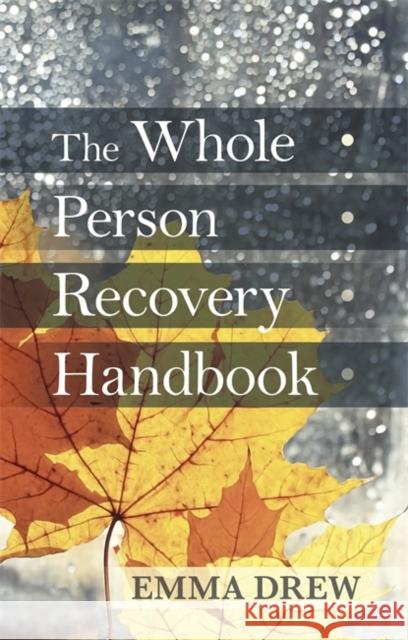Whole Person Recovery Handbook » książka
Whole Person Recovery Handbook
ISBN-13: 9781847093240 / Angielski / Miękka / 2015 / 120 str.
Pioneering book on empowered recovery, encouraging addicts to take an active part in their recovery. "It is acceptance of one's own ordinariness and regular human dimensions that seems to be a key resource in recovery from the affliction of addiction." The idea of recovery is that people learn to live with the past and with their imperfections, and find positive steps forward that work for them. Whole Person Recovery (WPR) aims to co-design treatment with the addict, build 'recovery capital', and maximise chances of success by supporting the addict to take control of their recovery. This joint process has been shown to be more effective than traditional approaches to treatment - and is fast influencing and overtaking such approaches. At the heart of the process is self-acceptance, safe space, trust, learning, human warmth and kindness. Topics include; Substance abuse disorder and addictive behaviour disorder Related mental health problems such as severe depression Traditional recovery methods eg 12-step programmes The importance of person-centred counselling The baggage: finding ways to manage past feelings and experiences Breaking routines: developing skills and capabilities for the future Treatment: formal and informal services and support Making a plan: formal and informal coping strategies The rest of my life: getting well and staying well.
Pioneering book on empowered recovery, encouraging addicts to take an active part in their recovery. "It is acceptance of ones own ordinariness and regular human dimensions that seems to be a key resource in recovery from the affliction of addiction." The idea of recovery is that people learn to live with the past and with their imperfections, and find positive steps forward that work for them. Whole Person Recovery (WPR) aims to co-design treatment with the addict, build recovery capital, and maximise chances of success by supporting the addict to take control of their recovery. This joint process has been shown to be more effective than traditional approaches to treatment - and is fast influencing and overtaking such approaches. At the heart of the process is self-acceptance, safe space, trust, learning, human warmth and kindness. Topics include; Substance abuse disorder and addictive behaviour disorder Related mental health problems such as severe depression Traditional recovery methods eg 12-step programmes The importance of person-centred counselling The baggage: finding ways to manage past feelings and experiences Breaking routines: developing skills and capabilities for the future Treatment: formal and informal services and support Making a plan: formal and informal coping strategies The rest of my life: getting well and staying well.











